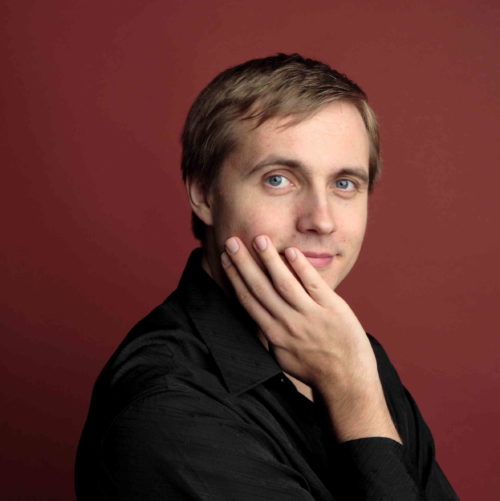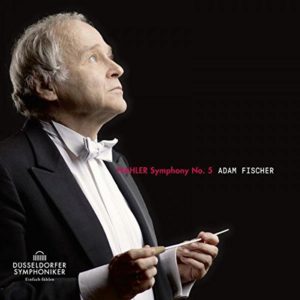GRAMOPHONE: From Where I Sit – June 2019
 There is an undeniable thrill in hearing special talent from other cultures embrace our music as their own. A few nights ago (at the time of writing) I had the pleasure of hearing Vassily Petrenko power the London Philharmonic through the incendiary pages of Walton’s First Symphony – a work that I have grown to admire and love beyond reason over the years. It is without question a total masterpiece, a work full of incident, surprise, febrile excitement, and beauty – probably the best thing Walton ever wrote and frankly was ever going to write. And even that belated finale – arrived at after the deadline for the first performance had passed (necessitating a three-movement premiere) – takes us to a new place. It’s a place called home, a place where this very ‘international’ symphony becomes, in my view, fiercely nationalistic, even Shakesperian, in its triumphalism. Some find it unsatisfactory, unearned. Not me. And not Petrenko who arrived at the flaring double-timpani entry like a man possessed and who carried us through to the ‘Cry God for Harry’ ending with its bells-raised horn fanfares like Leningrad was a very long way away.
There is an undeniable thrill in hearing special talent from other cultures embrace our music as their own. A few nights ago (at the time of writing) I had the pleasure of hearing Vassily Petrenko power the London Philharmonic through the incendiary pages of Walton’s First Symphony – a work that I have grown to admire and love beyond reason over the years. It is without question a total masterpiece, a work full of incident, surprise, febrile excitement, and beauty – probably the best thing Walton ever wrote and frankly was ever going to write. And even that belated finale – arrived at after the deadline for the first performance had passed (necessitating a three-movement premiere) – takes us to a new place. It’s a place called home, a place where this very ‘international’ symphony becomes, in my view, fiercely nationalistic, even Shakesperian, in its triumphalism. Some find it unsatisfactory, unearned. Not me. And not Petrenko who arrived at the flaring double-timpani entry like a man possessed and who carried us through to the ‘Cry God for Harry’ ending with its bells-raised horn fanfares like Leningrad was a very long way away.
Now I know that music is an international language – one that crosses all social, cultural and political divides – but there are very particular musical syntax which give it its specific national identity and accent – and conductors as perceptive as Petrenko instinctively pick up on them. A few years back I saw him stand in at short notice to conduct the London Symphony Orchestra in Elgar’s First Symphony – a piece to which he had only recently come – and whilst he had already been dubbed an honorary scouser in the city of Liverpool where the Philharmonic had their sights on a long relationship, his understanding of what made Elgar Elgar was quite uncanny. He has, of course, gone on to explore, and record, this composer extensively and has doubtless taken him to Russia and beyond. But my my point is this: why do some composers travel less well than others, why for all the advocacy of major conductors – and in Elgar or Walton or even Vaughan-Williams’ case that would include names outside of the English establishment like Barenboim, Previn, Slatkin, Solti – do they not take root in the core repertoire away from these shores?
There is no easy answer. But you still have to ask why pieces as great as the Walton First or the Elgar Symphonies aren’t as central to the international repertoire as they might be. Elgar’s stiff-upper-lip-pomp-and-circumstance image has sometimes been cited but as Simon Rattle once said to me, behind that exterior seethes a passionate and troubled spirit. I think his line was: ‘If he’d been born in Austria he’d have been called Mahler.’
Which brings to mind an exchange I had with Daniel Barenboim just after the fall of the Berlin wall. His exasperation trying to persuade the Berlin Philharmonic to play the Elgar symphonies had led him to try Elgar’s Falstaff instead. When asked by one of the players what it was like, he replied ‘It’s a kind of English Till Eulenspiegel’. But after the concert, approaching one of the bass players, he asked what he thought. The answer: ‘Well, if we must, then Mahler.’ Asked and answered.
You May Also Like

A Conversation With VASILY PETRENKO: On Shostakovich
02/09/2010
GRAMOPHONE: From Where I Sit – August 2020
16/09/2020


One Comment
Trevor Yorke
As always, your piece form the Gramphone (From where I sit – June 2019) raises some interesting points.
Regarding Walton 1, it had never occurred to me that the last movement is more ‘British’ than the preceding three only that it is a glorious conclusion to a great symphony, in a good performance, sparking with electric energy. To me, it doesn’t quite ‘fit’ with the rest of the symphony which perhaps is only partly explained by its delayed arrival.
I share your disappointment that the great works of Elgar have never hitherto sat regularly in the international repertoire, but don’t you think this is changing? If you look at for example the excellent Digital Concert Hall Site of the Berlin Phil you will find 14 works by Elgar (some repeated) by conductors as varied as Rattle, Barenboim (not just Falstaff but Gerontius and the ‘Cello concerto), Jansons, Mehta, Zinman, Runnicles together with a thrilling and insightful debut by the orchestra’s new chief Kirill Petrenko of the 2nd symphony. With the Berlin Phil – who’d have thought it?!
Peversely perhaps, I have never regarded Elgar as a being a profoundly British composer, his overall style is unique of course but greatly influenced by great Europeans like Wagner, Brahms – and even a touch of Massenet, so why shouldn’t he travel well? The great Vaughan Williams is another matter, he is in my view very English (I wouldn’t even say British) and I can understand that his compositional style is difficult for dare I say ‘foreign’ conductors and orchestras
Further proof of Elgar’s growing international stature is that there are 115 Elgar works being performed throughout the world this year between April 1st and June 30th from Istanbul to Mexico City, including seven performances of what is surely one of the greatest of all Violin Concerti.
Trevor Yorke